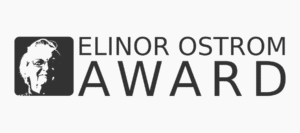The Grupo Autónomo para la Investigación Ambiental (GAIA) is an association that mainly works in the Southern state of Oaxaca, Mexico. The team began working in Oaxaca Costal Region in 1994, integrated by an interdisciplinary group of biologists, agronomists, and foresters, who sought to provide sustainable agricultural options and to promote ecological restoration practices for those communities displaced by the creation of the National Park of Bahías de Huatulco that soon became one of the most important international touristic places in Mexico.
GAIA was formally constituted in 1998 and maintains an interdisciplinary team and work orientation. For two decades GAIA has worked with diverse communities in the watersheds of the rivers Copalita, Zimatán, and Huatulco, aiming to strengthen the technical and governance capacities of communities, as well as the improvement of their living conditions. An important achievement of this joint work was the creation of the Sistema Comunitario para la Biodiversidad (SICOBI) in 2001. Sistema Comunitario para la Biodiversidad (SICOBI) in 2 groups nine communities from the Coast and the Souther Sierra of Oaxaca, committed to sustainable land management and sustainable production of coffee, honey, corn, and beans. In 2008, SICOBI and GAIA created their own commercial brand: Pueblos y Selvas that certifies sustainable and fair production, oriented to solidarity and niche markets.
Movie ‘Grupo Autónomo para la Investigación Ambiental’s story’.
This movie was created as part of the joint ‘Commons in action’-program by the IASC and the Elinor Ostrom Award.
The animation was created by Viumasters.
GAIA works based on regional development programs, incorporating different communities in various regions focusing in threes lines: community institutional strengthening, community land and natural resource management, and regional development strategies. For many years GAIA has worked with the governmental program of Payment for Environmental Services, interested in the recognition of the role of communities’ efforts in the maintenance and provision of ecosystem services. GAIA has promoted the reinvestment of these ‘environmental rents’ generated by the areas that communities have decided to devote to conservation and the protection of water bodies, in sustainable agro-forest and forest productive systems.
Based on this experience GAIA and Sistema Comunitario para la Biodiversidad (SICOBI) are leaders of the construction of the REDD initiative in Oaxaca, diverging from the federal government’s climate change strategy, as they seek a more de-centralized governance also compatible with local livelihoods. In recent years seeking to extend the reach of their climate mitigation perspective, GAIA has taken part in community land management processes in the Mexican states of Tabasco, Chiapas, Estado de México, and Quintana Roo.
GAIA was awarded the 2013 Elinor Ostrom Award on Collective Governance of the Commons for their work to consolidate local rules into practice, particularly with ejidos and indigenous communities on forests management.

Authored by: webmaster.

